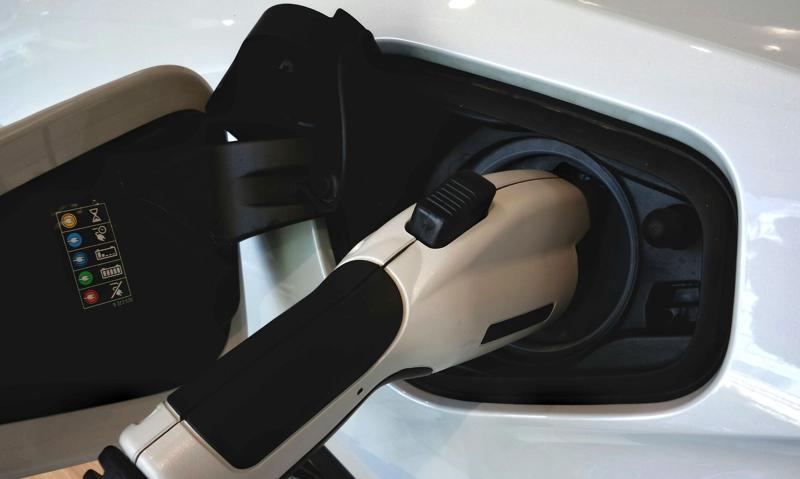The U.S. House of Representatives passed a measure overturning California’s 2035 ban on new gas-powered cars, which has been adopted by 11 other states and the District of Columbia, making up 40% of the American market.
California’s air regulations predate the EPA and were created to combat the state’s infamous smog. California is allowed to create emissions standards more strict than the federal standard so long as the EPA grants a waiver for each new standard, but Congress has invoked the Congressional Review Act — which grants Congress the power to overturn regulations created by executive agencies within 60 legislative days — to reverse the ban.
While not a single Republican voted against the measure, 35 Democrats supported the resolution, allowing the measure to pass Wednesday with a strong 246-member majority, with 164 against and 22 abstaining.
Notably, two California Democrats, U.S. Reps. J. Luis Correa, D-Santa Ana, and George Whitesides, D-Lancaster, voted to overturn the state’s gas car ban.
The phased-in zero-emission vehicle requirement applies to Massachusetts, New York, Oregon, Vermont and Washington for the ongoing model year 2026, and Colorado, Delaware, Maryland, New Jersey, New Mexico, Rhode Island, and Washington, D.C. for model year 2027.
With ZEV market share in California — which has the highest ZEV adoption rates in the country — having declined from 22% in 2024 to 20.8% in the first quarter of 2025, Toyota has said the target is “impossible” to meet, as ZEV sales would have to increase 68% practically overnight.
Carmakers earn credits for selling qualifying plug-in hybrid and battery-electric vehicles, and for every credit they are short, they can buy excess credits from EV makers such as Tesla or pay a $20,000 fine.
If there aren’t enough credits to go around, or the credits become too costly, dealers say they’ll need to stop selling standard hybrids and gas-powered cars where the mandate is in effect, as Jeep did in 2023.
But plug-in hybrids and electric vehicles are significantly more expensive to consumers. They’re also more expensive to repair and maintain. The plug-in hybrid Jeep Wrangler starts at a whopping $50,695, while the regular gas-powered Jeep starts at $31,995. The typical EV financing cost is $700 per month, or more than many Americans can afford.
“We are concerned automakers will restrict shipments of traditional hybrids and affordable gas-powered models to avoid massive fines,” said California New Car Dealers Association President Brian Maas in an earlier interview with The Center Square. “This is occurring in California’s heavy-duty truck marketplace, which has been devastated by similar CARB rules that took effect in January 2024.”
Maas also said the regulations would bring used car prices even higher as more Americans look for affordable alternatives that are still legal to purchase.
Used car prices have already been boosted by the Obama-era “Cash for Clunkers” program that paid owners of working, affordable cars more than their cars were worth to scrap them, pandemic-era supply chain issues that led carmakers to focus on only stocking higher-end vehicles, and ongoing tariffs.
“We expect these inventory shortages of traditional hybrid and gas-powered models to become more acute over time,” continued Maas. “We are also concerned that shortages of new vehicles will increase used vehicle prices.”
The measure now goes to the Senate, where the parliamentarian has ruled that the Biden administration waiver that allowed California to enact this regulation is not subject to congressional review.
“The only thing that’s changed is that big polluters and the right-wing propaganda machine have succeeded in buying off the Republican Party – and now the House is using a tactic that the Senate’s own parliamentarian has said is lawless,” said California Gov. Gavin Newsom in a statement. “Washington may want to cede our economy to China but California is standing by American innovation.”
By custom, the Senate parliamentarian is rarely overridden, but historical legislative norms have been eroding, most notably in the recent case of the filibuster. In 2013, Democrats invoked the “nuclear option” by ending the traditional approval of cabinet nominees by a supermajority of 60 votes, requiring only a bare majority. In 2017, Republicans adopted the same power for Supreme Court nominees.
The House also passed resolutions overturning waivers for the state’s diesel-engine and zero-emission heavy-duty-vehicle requirements, which also could have a major impact on consumer prices. Forty percent of the nation’s imports — largely from Asia — come through Southern California seaports, and are carried by diesel-powered trucks and trains through the rest of the country — a figure that does not include goods coming in through the Mexican land border.
Should these regulations be allowed to stand, prices for consumer goods that touch California in any way could rise even further, as 7% of the cost of a good generally is from transportation.







